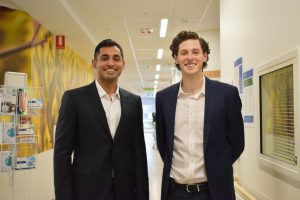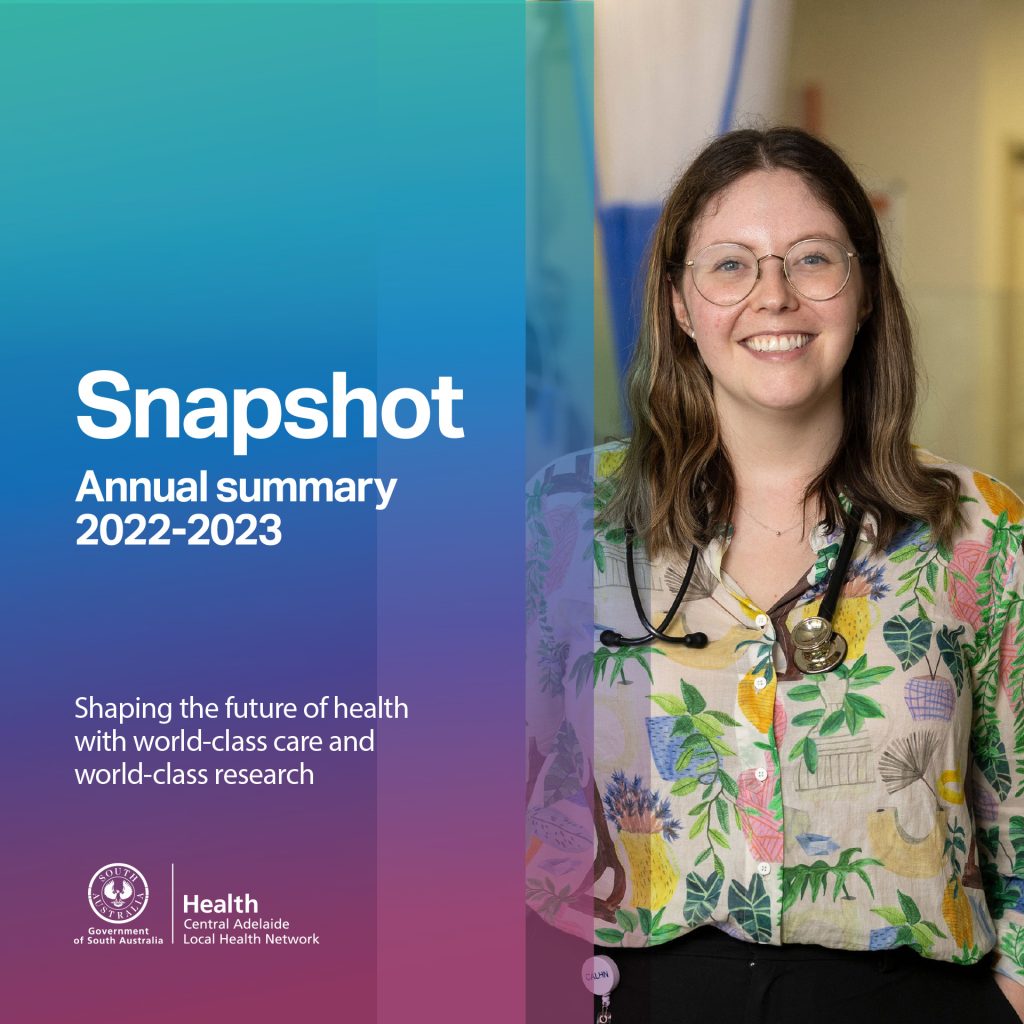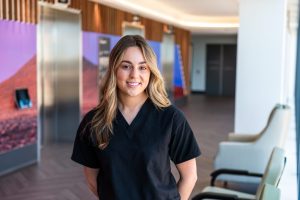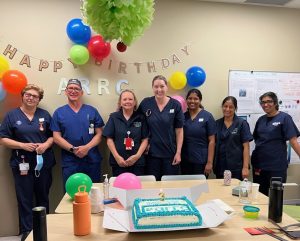Central Adelaide Local Health Network (CALHN) produces an annual report each financial year that provides a snapshot of our performance and achievements.
This year’s summary features examples of our world-class care and research, plus innovative projects improving patient safety and outcomes.
Here are a few of the stories included in the 2022-2023 Snapshot: Annual Summary:
World first post-surgery care
A world-first program to help reduce post-surgery complications has been implemented at the RAH. Led by Professor Guy Ludbrook (pictured below) the Advanced Recovery Room Care (ARRC) program involves closely monitoring ‘moderate-risk’ patients for 12 to 18 hours after their surgery, using existing skilled hospital staff and advanced equipment to provide specialist care tailored to their individual needs. Over 12 months, an initial trial found the program was able to halve serious complications and deaths after surgery and reduce subsequent Emergency Department presentations.

Life-changing impact
The SA Prison Health Service, a specialised clinical health service within CALHN implemented a collaborative program to reduce the burden of Hepatitis C on the prison population and the wider community. The program tested and treated on an unprecedented scale, resulting in significantly reduced rates of untreated Hepatitis C in SA Prisons of less than 1 per cent, compared to 5-15 per cent nationally, and delivering a life-changing benefit for people in custody.
Building for the future
Service improvement in the western suburbs continued to be a priority, with the construction of the new clinical services building well underway at The Queen Elizabeth Hospital (TQEH). The new building will feature a new emergency department, which will be more than 40 per cent larger inclusive of 46 treatment spaces with multiple zones to treat different presentations. In addition, CALHN commenced planning for a new 24-bed mental health facility at TQEH which is expected to open by late 2025.
Solving a global problem
Managing the flow of patients in and out of hospital is a major challenge for hospitals. TQEH researchers’ Josh Kavoor and Stephen Bacchi (pictured below L-R), have developed an innovative AI algorithm that accurately predicts when general surgery patients are ready to be discharged from hospital. The ‘Adelaide Score’ could help hospitals worldwide reduce pressure on emergency departments and improve access to care for patients.

Guiding our reconciliation actions
CALHN released its third Reconciliation Action Plan in 2022-2023, setting out a clear program of work to guide our reconciliation actions. The plan recognises culturally-safe and welcoming environments can contribute to better health outcomes and acknowledges our responsibility to ensure our services are inclusive of the needs of all community members. It reaffirms CALHN’s commitment to listening to the lived experience and feedback from Aboriginal and Torres Strait Islander consumers.
View the 2022-2023 Snapshot: Annual Summary.



